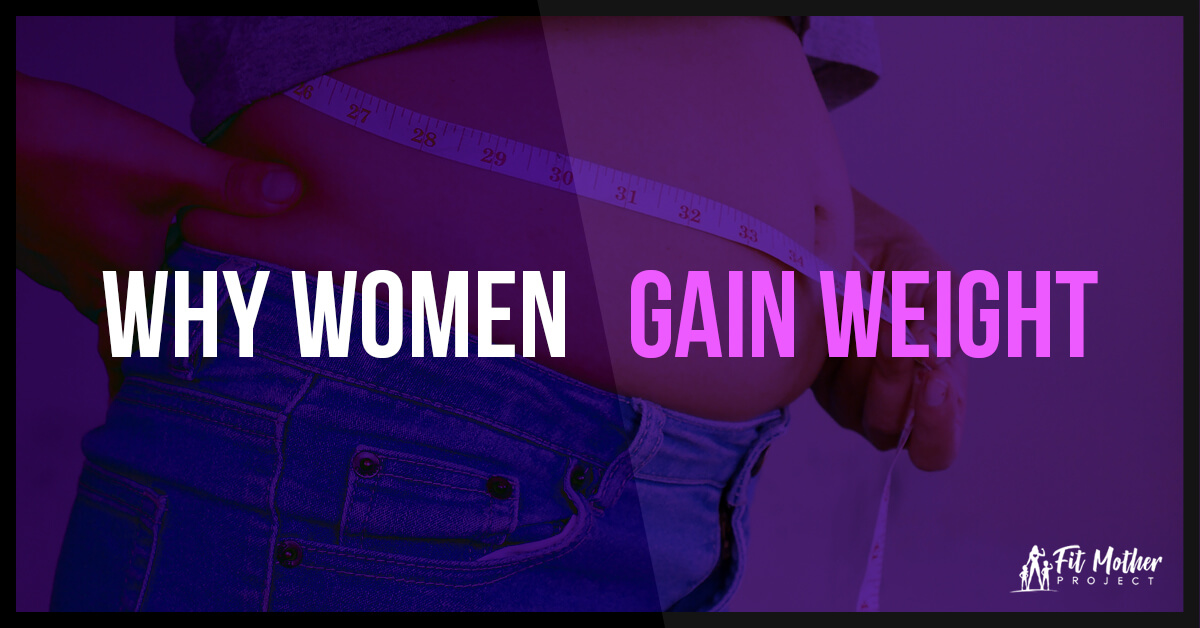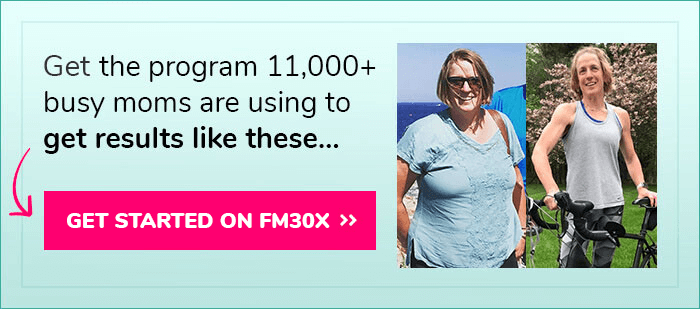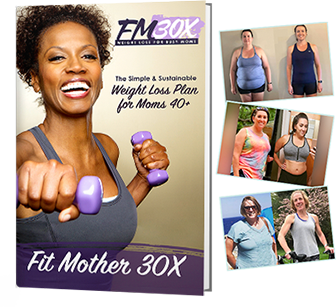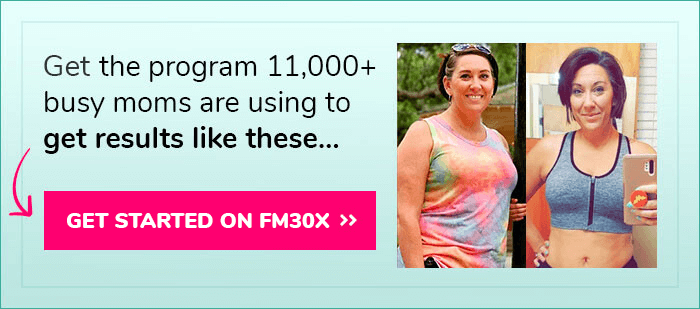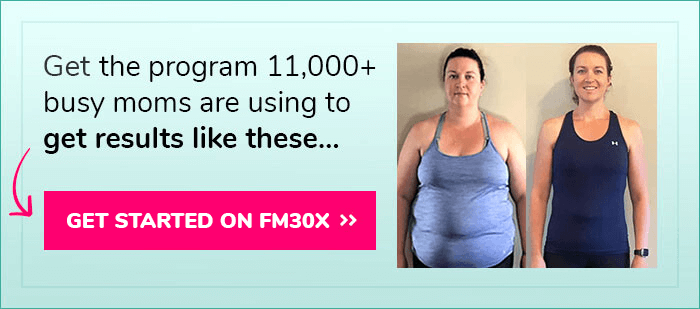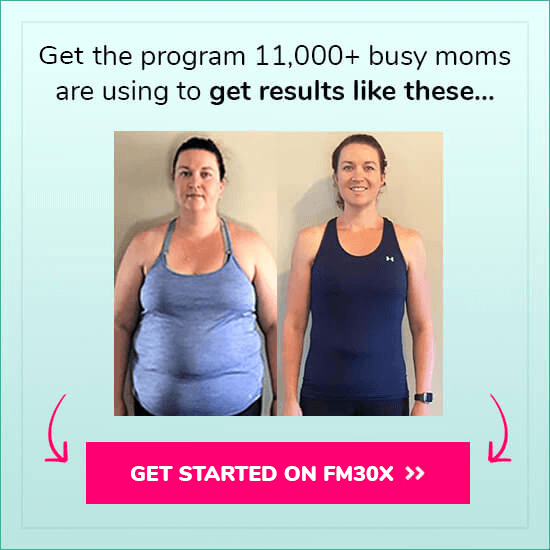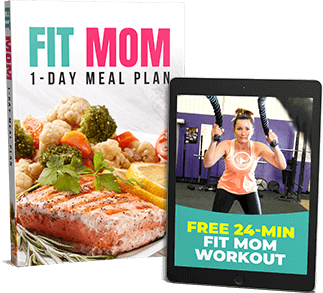If you're wondering why women gain weight, you're not alone, as nearly 74% of adults are overweight or obese.
If you weigh more than you'd like to, understanding why women gain weight and how to avoid this phenomenon is important.
The bottom line is that many women are overweight or obese and tend to gain weight as they age – especially over 40.
However, weight gain after 40 and beyond isn't inevitable with the right knowledge, healthy eating plans, and exercise programs in place.
Knowing more about the main reasons why women gain weight, and what to do about it, can help you maintain a healthy weight for a lifetime.
How much weight can you lose in a month? Find out the TRUTH here!
Let us show you how you can start losing weight this week! We'll email you our free meal plan & workout + email coaching.GET YOUR FREE
“FIT MOM” JUMPSTART
(MEAL PLAN + WORKOUT)
Common Places Women Gain Weight
As women age, they often gain weight in their abdomen, hips, breasts, thighs, or arms.
Where you store the most fat depends on your genetics, but women tend to naturally have more body fat than men.
Men usually store excess fat in their abdominal area.
As you drop weight and body fat, you will likely lose fat all over your body – especially in places you store the most fat (thighs, hips, abdomen, etc.).
Spot reduction is difficult, though increasing cardiovascular exercise and building muscle mass can help.
Top 15 Reasons Why Women Gain Weight
Some of the top reasons why women gain weight with age are as follows:
Reduced Muscle Mass
With increased age often comes decreases in muscle mass, which can lower your body's metabolism and increase your risk of weight gain.
But just because you're over 40 doesn't mean muscle loss is inevitable.
If you haven't already done so, consider adding strength training exercises to your usual workout routine.
Try Fit Mother Project weight lifting workouts, which you can complete from the comfort of your home.
Purchase dumbbells, kettlebells, resistance bands, or use your own body weight as resistance (push-ups, sit-ups, squats, lunges, planks, etc.) to boost muscle mass and your metabolism.
Doing so can help prevent weight gain in women over time.
Hormone Changes
Hormone changes in women are common, especially over 40.
Your body might produce less estrogen, which can affect your body's metabolism and your risk of weight gain.
If you have low estrogen levels, consider foods or drinks rich in phytoestrogens, which are compounds similar to the estrogen your body produces.
Examples of such foods include soybeans, tofu, tempeh, miso, soy milk, flax seeds, and sesame seeds.
You might take vitamin D or other dietary supplements as directed by your doctor.
They may suggest you try hormone replacement therapy if needed to balance hormone levels.
Estrogen therapy for women might include pills, skin patches, creams, gels, or sprays.
Fit Mother Project is the first sustainable health & weight loss program designed exclusively for busy mothers just like you... FM30X is the first sustainable weight loss program designed exclusively for *busy* mothers like you... JOIN OUR fit
mother
PROGRAM (FM30X)JOIN OUR FIT MOTHER 30X PROGRAM
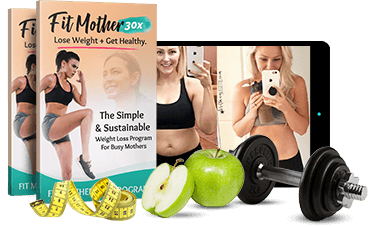
Pregnancy and Breastfeeding
It's well-known that pregnancy is a common reason why women gain weight and body fat, but you may have questions about how breastfeeding affects weight loss and body fat storage.
While breastfeeding may help you lose weight and calories, it can cause some women to hold on to fat stores.
The composition of breast milk is rich in fat, and your body needs fat stores to produce enough milk to feed your baby.
Prolactin, sometimes referred to as a fat-storing hormone, helps stimulate milk production in breastfeeding women.
But don't get discouraged if your body holds on to some of its fat stores when you're nursing, as the benefits of breastfeeding for your baby are endless and you can still gradually move toward an ideal body weight.
Too Much Sitting Down
Sitting down most of the day is all too common, especially if you have a desk job.
But studies show that sitting down more than 9-10 hours per day can significantly increase your risk of heart disease and other chronic conditions compared with sitting down just 5 hours (or less) per day.
Avoiding sitting down whenever possible.
If this isn't an option because you have a desk job, consider a sit-stand desk at work, increase your activities of daily living, or boost the number of minutes you exercise.
Take walking or stair climbing breaks throughout the day – even if it's just for 5 minutes each time.
Is sitting the new smoking? Learn about the negative effects of sitting and how to reverse them!
Sugar-Sweetened Drinks and Diet Drinks
Drinking sugar-sweetened beverages is a big reason why women gain weight.
These drinks don't contribute to satiety, can stimulate cravings for sweets and other sugary foods, and provide empty calories with few (if any) beneficial nutrients.
Examples of sugar-sweetened beverages include soda, lemonade, sugar-sweetened juice drinks, many types of energy drinks, and sweet tea.
Diet drinks aren't a good choice either if you're trying to avoid weight gain.
Studies show that beverages (or foods) sweetened with artificial sweeteners are linked with increases in waist circumference and blood sugar levels, despite the fact that such sweeteners are calorie-free.
Sweet-tasting foods and drinks can increase your body's insulin levels, desensitize your palate to sweetness, and often make you crave real sugar.
Furthermore, artificial sweeteners can negatively affect your microbiome, or the good vs. bad bacteria found in your gut.
Refined Carbohydrates
Eating too many refined carbohydrates is a big reason why women gain weight.
Your body stores excess carbohydrates and calories as body fat, and refined carbs don't usually fill you up as much as protein, dietary fat, or fiber-rich carbs (whole grains, fruits, dried beans, other legumes, nuts, seeds, and vegetables).
Cut back on or eliminate white bread, white rice, baked goods, sweets, sugary drinks, and other sources of refined grains or added sugar in favor of whole foods.
Protein-rich chicken, turkey, lean organic red meat, eggs, fish, seafood, dairy foods, nuts, and other protein foods can fill you up with fewer calories and increase your body's metabolism.
What are the worst carbs to eat? Here are the most important carbs to avoid for weight loss!
Not Enough Fiber
Fiber is a satiety booster, and fiber-rich whole foods can add a variety of essential nutrients to your meal plan.
While fiber fills you up, your body doesn't fully digest or absorb it, as you excrete much of the fiber you consume.
Many women don't eat as much fiber as they need to achieve exceptional health.
The Academy of Nutrition and Dietetics recommends women aim for at least 25 grams of fiber each day.
Fiber-rich foods include fruits, vegetables, legumes, nuts, seeds, and whole grains (plant-based foods).
Studies show that fiber supplementation can reduce waist circumference, body weight, eating occasions, and body mass index (BMI).
Ask your doctor if fiber supplements are right for you, but try to meet most of your daily fiber needs by eating fiber-rich foods.
Too Little Protein
Like fiber, protein is a satiety booster because it can keep you full for longer time periods.
Studies show that in addition to increasing satiety, protein helps you maintain lean muscle mass – even during periods of weight loss.
Not eating enough protein puts you at risk of weight gain.
Aim to include high-protein foods in each of your meals and snacks.
Examples include eggs, lean red meat, chicken, turkey, fish, seafood, cottage cheese, milk, Greek yogurt, cheese, nuts, seeds, nut butters, and legumes.
How much protein do we need per day? Calculate your daily protein intake!
Not Enough Cardiovascular Exercise
With aging, your metabolism tends to slow down.
Increasing the number of minutes you exercise aerobically can help compensate for this.
To avoid dreaded weight gain, especially over 40, try to get at least 30 minutes of cardiovascular exercise daily.
This includes jumping jacks, rope jumping, jogging, walking, cycling, swimming, rowing, stair climbing, or using an elliptical machine.
Lack of Structure and Motivation
Not knowing which foods to eat, which fat-burning workouts are best, or having the motivational support needed to stay on track with healthy living are some of the top reasons why women gain weight.
If you're seeking guidance, motivational support, or personalized meal plans and workouts, consider the Fit Mother Project healthy living program for women.
The plan has helped hundreds of thousands of busy moms reach their goal weight and maintain it for life.
Try a free meal plan and workout to get started.
Not Enough Sleep
Studies show that getting too little sleep (sleeping less than 7 hours per night) is associated with higher body mass index and obesity.
One reason for this is that getting too little sleep can alter hormones within your body that increase hunger.
Since sleep deprivation can cause fatigue, you may find that you expend fewer calories, or even skip workouts altogether, on days after you get fewer than 7 hours of sleep.
Try to go to bed at the same time each night, allow yourself at least 7 hours of interrupted sleep, and avoid caffeine, smoking, alcohol, and eating a large meal right before bed.
Sleep in a cool dark room, don't go to bed hungry, and use a white noise machine or fan as needed to block out loud sounds.
Stress, Anxiety, and Depression
As with sleep deprivation, stress, anxiety, and depression can contribute to eating more calories than you need.
That's why these mental health challenges top the list of why women gain weight.
You can't always avoid stress and anxiety, but you can find ways to reduce them.
Avoid “stress eating” whenever possible by going outside for a walk to doing something else you enjoy.
Try relaxation techniques, such as slow breathing, yoga, meditation, tai chi, being spiritual, or therapeutic massage.
Lighten up a busy schedule, go on a vacation, or take a mental day off from work.
Spend more time outdoors, make time for regular workouts, and ask a friend or family member to watch young children so you can take much-needed time for yourself.
Depression affects women in different ways.
It might cause you to eat too few or too many calories.
You may emotionally eat too much on days you feel down in the dumps, or skip workouts because of sadness and lack of motivation associated with it.
If depression or anxiety negatively affects your appetite, eating habits, and body weight, your doctor might recommend medications or counseling.
Natural mood boosters include spending time outdoors, getting regular exercise, and spending time with friends or loved ones.
Find out how stress is killing us as we reveal some important research about stress.
Excessive Dining Out
As much as you try to eat healthy while dining out; studies show that eating in restaurants is associated with higher body mass indexes (BMIs).
To reduce weight gain associated with aging in women, limit the number of times you eat at restaurants in favor of preparing healthy meals at home.
If you do dine out, choose lean protein foods like baked chicken, unbreaded fish, seafood, or eggs – plus a lot of vegetables.
Steer clear of fried foods, fast foods, gravies, cream-based soups, white bread, white rice, processed meats, mac and cheese, pizza, and other highly processed foods.
Ask for salad dressings and other sauces on the side.
Alcoholic Drinks
Alcohol contains 7 calories in each gram, and many drinks commonly mixed with alcohol are high in added sugar.
To avoid common reasons why women gain weight, consider reducing or eliminating alcoholic drinks from your menu.
Drinking in moderation for women equates to having one drink or less per day.
If you do drink alcohol, avoid mixing it with soda, lemonade, or other sugar-sweetened drinks.
No Routine
Not having a daily routine is a risk factor for weight gain in women, especially those over 40.
Follow a set routine as much as possible by planning out daily tasks and using a calendar.
Stick with a schedule to help you stay organized and accomplish more tasks throughout the day.
A routine that consists of a regular bedtime, daily exercise, healthy eating, and active chores can help you avoid some of the top reasons why women gain weight.
Plan healthy meals when cooking at home.
Choose meals that fill each plate:
- Half-full of non-starchy vegetables (greens, tomatoes, bell peppers, green beans, asparagus, broccoli, etc.)
- One-fourth full of protein foods (chicken, turkey, fish, seafood, eggs, tofu, etc.)
- One-fourth full of fiber-rich starches (whole grains, corn, peas, beans, potatoes, other starchy veggies, etc.)
Add in three servings of dairy foods daily, 1-2 servings of fruit per day, and heart-healthy fats at each meal.
Erin Coleman is a registered and licensed dietitian with over 15 years of freelance writing experience. She graduated with her Bachelor of Science degree in nutritional science from the University of Wisconsin-Madison, and completed her dietetic internship at Viterbo University in La Crosse, Wisconsin. Prior to beginning her career in medical content writing, Erin worked as Health Educator for the University of Wisconsin-Madison Department of Internal Medicine. Her published work appears on hundreds of health and fitness websites, and she’s currently working on publishing her first book! Erin is a wife, and a Mom to two beautiful children.
Fit Mother Project is the answer you’ve been looking for. Inside the program, you’ll receive: Our Fit Mother 30X Program (FM30X) is the answer you’ve been looking for. Inside FM30X, you’ll receive:If you’re a busy mom who wants to finally lose weight,
get healthy, and actually keep the pounds off for good,
this is the simple program you’ll love sticking to…
If you’re a busy mom who wants to finally lose weight,
get healthy, and actually keep the pounds off for good,
this is the simple program you’ll love sticking to…
LEARN MORE ABOUT FM30X »
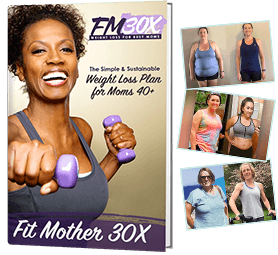
Learn More About FM30X

*Please know that weight loss results & health changes/improvements vary from individual to individual; you may not achieve similar results. Always consult with your doctor before making health decisions. This is not medical advice – simply very well-researched info on why women gain weight.

